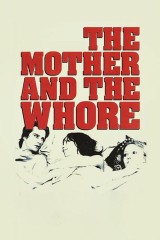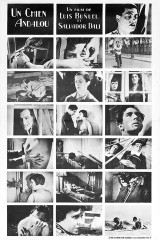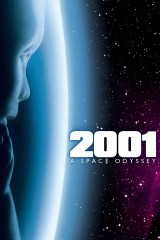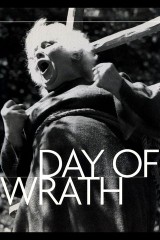
(Photo by Stephane Cardinale - Corbis/Getty Images)
Ever since his 1998 debut, I Stand Alone, filmmaker Gaspar Noé has consistently courted controversy with his ambitious, adventurous, and decidedly provocative features. Whether it was the exploration of sexual violence in Irréversible, the hallucinogenic out-of-body experience of Enter the Void, or the unscripted scenes of explicit sex in Love, Noé has never shied away from subjects that more squeamish directors might avoid.
Noé’s latest film, Climax, is his best-reviewed film since I Stand Alone, and it’s arguably his most accessible, though no less challenging. It centers on a troupe of dancers who, after an exhilirating rehearsal, succumb to the effects of LSD-laced sangria and gradually explode into hysterical, writhing fits over the course of one night. Noé shot the film in several long, virtuosic single takes punctuated by candid conversations between his cast of largely non-professional actors, and the effect is like a fever dream that transforms into a nightmare. Before the release of Climax, which hit theaters on March 1, Noé spoke to RT about his Five Favorite Films, noting that in his previous interview with us, he focused on the five films that changed his life. It’s a subtle difference, but one that yielded quite interesting results.

It’s a movie from 1973, directed by Jean Eustache, and it’s a three hours and thirty minutes movie based on his personal life. He tried to do a documentary about his relationship with his girlfriend and his lover and how they tried to have a threesome, and he was noting everything that was going on while it was going on and he was noting the dialogue, he was taking notes.
And then he decided he wanted to do a documentary of his emotional, personal life just after it happened, and it’s the best depiction on screen of dysfunctional passion that I’ve ever seen, because it’s so true, everything that he said. He put all his closest friends and ex-lovers in the movie. His wife was next to the camera where they were shooting with Bernadette Lafont playing his wife, and they shot the movie is in his girlfriend’s house.
But the whole movie concept is so good, because the end the movie is really emotional. It’s all about three people who cannot manage to love each other, and drama, drama, drama. It’s so close to watching his experience in life, that how could he manage to do this? He was obsessed with shooting the scenes of him and his lover in the real location where he had his relations with his lover. But it was great doing a documentary about his life with actors playing his part and his girlfriend and his lover’s part, but also his ex-lovers who were playing the part. The whole concept of the movie is such a puzzle. And he was someone who was very tormented since he was young, and he ended up committing suicide some years later.
But, that movie actually is very hard to find, because for rights reasons it’s kind of in the closet, but you can find it on the net sometimes. I watched one year ago, I watched it three times in a row. I’m obsessed with that movie. When people say to go to an island, which movie would you bring, I guess I would bring 2001: A Space Odyssey, The Mother and The Whore, and Un Chien Andalou. That’s an absolute masterpiece that should be rediscovered, like transferred to 4K or Blu-ray. It’s one of the biggest movies that I know that is not being released as it should nowadays.

I’m obsessed with 2001: A Space Odyssey, but I’m not jealous of the director who directed it because it was so much work. I’m sure he was working 20 hours a day for five years, with the very best people he could find on this planet to create a cathedral of cinema. The movie is a cathedral itself. And also when you read about how the reception to the movie was, how much he suffered, everybody was picking on the movie besides the young audience, that you don’t envy Kubrick. You envy his talent. But if there’s one director that I really envy, it’s Buñuel.
I wish I was in his head when he had shown the movie he co-directed with Salvador Dali, because it’s just a short movie, a 17-minute movie, but that still is his most famous movie after a huge career of fabulous movies. And it’s the first movie that I know that really used the language of dreams and nightmares.
The opening scene of the movie, of the short film, with Bunuel cutting the eye of a woman — even if the close-up, they replaced the eye of the woman by the eye of a cow — is so shocking that I wish I could have been in the audience, if I could not be behind Bunuel. If I could see the reaction, I’m sure there’s never people turning more crazy in the history of cinema, than the first audience that that movie had.
Really it was not as banned as his first feature, L’Age d’Or, that was more anti-religious than this one. But yeah, there’s so many documentaries about the Second World War, about the First World War, about the things that happened in the trench, but why didn’t anybody film the opening day, or that first premiere of Un Chien Andelou? I’m sure that it was a general state of shock.
And the movie is so beautiful, so political, that it’s a real piece of art. There’s not many directors you can consider as artists. Of course, Kubrick’s like an architect, the most famous architect in the history of cinema, but as a poet or painter, Bunuel is an artist. Also, he was co-directing a movie with Salvador Dali, which makes sense. You can say Kennith Anger is an artist. But there are not many filmmakers that you can consider artists.

My first memory was being in the movie theater — the strongest one up to this date, 60 or 48 years later. I still remember the shock of being transported into another dimension. Also, going through the gate of light like if I’d taken a huge dose of acid, like discovering other dimensions. But when you discover dimensions in a safe context as a movie theater, it looks even better.
When I came out from that movie, I felt someone had injected me with something in the brain. I was obsessed with going to see the end of 2001. I liked the ape scenes, I like the beginning, but I just wanted to go again and again to see the movie, to go through the Stargate.
And I’m happy, I met lately Douglas Trumbull [who did the visual effects on 2001], and we discussed Love, and he’s seen Enter the Void. For me, Douglas Trumbull was one of the very best partners in crime in this masterpiece, and just meeting him for me was just like discovering what was happening behind the curtain of the movie. This is the guy who like opened my mind when I was six years old.

Day of Wrath, for me, is another kind of perfection. It’s mature themes for mature people. It’s about inquisition and war, and no wonder why, after doing that movie about inquisition during the invasion of the Nazis in Denmark, then he was recommended to move away from Denmark just to save himself and family. It’s a very cruel movie about a cruel historical time, but in which some people are put in positions that they have to behave cruel against others, and all the characters are changing.
It’s very weird. Even the young girl who is very nice at the beginning, then she starts to turn to a witch, and you know that she’s going to die also, but the weak characters are touching. It’s a very complex movie in terms of the multiple faces that every human has in their life. You have the nice face when the situations are nice, and when the situations turn dramatic and there’s no way out, some people just become evil. What I like about Dreyer is he was studying movies about religion but from a very atheist approach. His movies are about the inside of humankind.
It’s such a perfect movie. There are some movies that you see and you go, “Oh, I wish the music was different,” or “I wish the actor was funny,” but there are the movies that you watch over and over and see that there’s not one single frame to change. They’re perfect.

The other one that I did not talk about at the time, that’s also among the movies that I can replay over and over because it supports me, is The Inauguration of the Pleasure Dome by Kenneth Anger that he shot after trying LSD with Aldous Huxley in Paris. It’s the first, and one of the most psychotic movies ever, and it’s just a movie that puts you in a different state of mind. The movie itself is like a drug to the viewer, and it’s not narrative. And there’s not many movies that are trips, shamanic trips; this is an absolute shamanic trip from beginning to end.
Ryan Fujitani for Rotten Tomatoes: I read that Climax is loosely based on something that actually happened.
Gaspar Noé: Yeah, it’s an open adaptation. I was working on two other scripts based on true stories, and the moment you decide to make a movie about a true story you need to have the permission of the families. Also you can guess when you weren’t in a situation and you see it from the outside or a newspaper, it’s reduced to a situation in which people die or something.
The whole movie happened quickly, although my line producer was obsessed with the story and I remember that story at the time. The movie was kind of improvised around what we had in mind for the story. So we said, like in the opening of the pitch, we can do a movie about a cult, you can do a movie about a war, you can do a movie about a couple of artists who committed suicide in their house, and you don’t know what happened. Then you can invent a story out of that couple of artists who committed suicide in the mountain. But, it’s an open adaptation.
And certainly the dancers were not as good as the ones that were in the movie. I mixed the story with the dancers that I wanted to film, so you will certainly know this type of dancing.
RT: Were you always interested in exploring the dance/musical format at some point?
Noé: No, I did once a music video with filmed dancing that I really enjoyed shooting, but I had never shot choreography even two weeks before shooting. I never even thought I would work with a choreographer, hopefully secure Nina McNeely, who’s a genius, and the casting, and what she created with them. I discovered on the third day of shooting, I had the crane, and then I started playing with the crane as Nina was playing with the dancers and the dancers were playing with the other dances. That particular scene is certainly the most corrective scene I’ve ever shot, because I thought I was more like a documentary director shooting something that I instigated but I was not responsible for. It’s like being the captain of a football team — you’re inside the team, but there are eleven players trying to win. So you can shout, but dancing didn’t come from my mind. In my mind I said, “Well, I want to do the choreography,” and I found my favorite dancers around Paris. If someone has to be congratulated it’s more them and Nina than me.
RT: The film’s themes are open for interpretation, though it’s easy to imagine some people will simply take the central message to be an anti-drug warning, and I don’t think that’s your intention.
Noé: It’s like, no, some people are for abortion, some people are against abortion. Drugs are everywhere, even coffee, and even wines. The movie’s not pro or against the use of chemicals. What I know is that there are situations that are portrayed in movies that exist in real life, and I like watching serious movies that would warn you about things that happened during wartime or in a hippie basement, but it’s like everything. Alcohol — I like alcohol. It’s very good when you take one glass of wine, two glass of wine, and then a third one and fourth, and the energy is going up and up, and everything that is constructive and funny can suddenly turn totally destructive. I’ve been in situations in which there were no drugs involved, in which a happy party turns into hell. Some people can handle alcohol, some people can not. Some people can handle small amounts of plants or chemicals, and the alternate. The movie’s not a cautionary tale. Drama exists in your life even without substances.
Climax is currently in theaters.